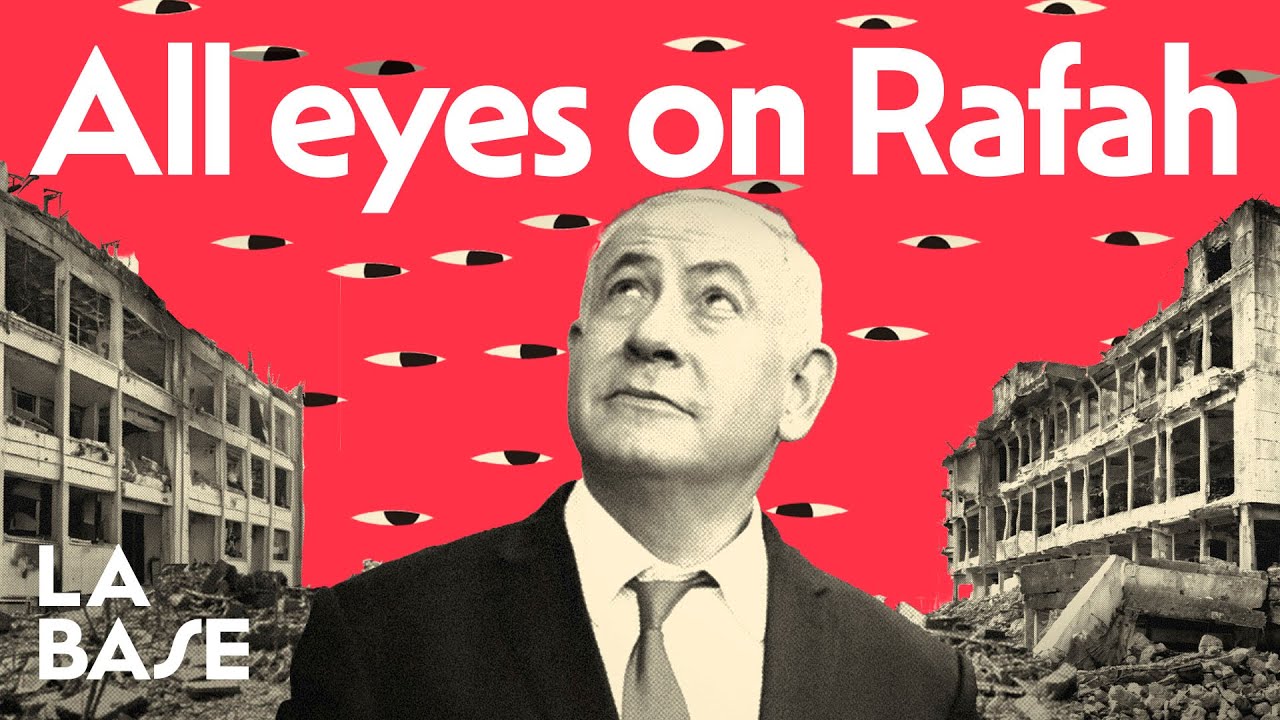Lee Kuan Yew's WARNING for Israel (ft. Iran, US & Singapore-Israel Relations)
Summary
TLDRThis script explores the intricate relationship between Singapore and Israel, highlighting Singapore's reliance on Israeli military support after independence in 1965, and its eventual diplomatic ties with Israel. It also delves into Lee Kuan Yew's cautious approach to this relationship, Singapore's consistent support for a two-state solution, and his broader warnings about Middle East conflicts. Lee critiques U.S. foreign policy, Israel’s settlement expansion, and fears of a nuclear arms race in the region, emphasizing the dangers of unresolved tensions between Israelis, Arabs, and Iran, which he believes pose significant risks to global peace.
Takeaways
- 🌍 In conflicts between Israelis and Arabs, rationality often dissolves, leading to fear and prolonged tensions.
- 🕊️ Lee Kuan Yew emphasized the need for Israelis to find a peaceful solution to avoid endless wars and potential disaster.
- 🇸🇬 Singapore established secretive military ties with Israel after its independence in 1965, despite potential backlash from neighboring Muslim-majority countries.
- 🛡️ Under Israeli guidance, Singapore developed its military, including conscription, modeled after the Israeli Defense Forces (IDF).
- 💼 Singapore's relationship with Israel extended beyond defense, drawing economic inspiration from Israel's strategies to leapfrog regional boycotts.
- 🏛️ Despite military assistance, Singapore refrained from officially recognizing Israel until later, balancing religious harmony and international relations.
- ✌️ Singapore consistently advocates for a two-state solution to the Israeli-Palestinian conflict, emphasizing the necessity of peace between both sides.
- 🇺🇳 In 2023, Singapore voted in favor of a UN resolution supporting Palestinian membership, reaffirming its commitment to a two-state solution.
- 📉 Lee warned that the Israeli-Palestinian conflict is becoming harder to resolve, with illegal Israeli settlements and US foreign policy complicating peace efforts.
- ⚠️ Lee expressed concerns about Iran's nuclear ambitions and viewed a nuclear arms race in the Middle East as a major global threat.
Q & A
What was Singapore's relationship with Israel shortly after gaining independence?
-Singapore's relationship with Israel began shortly after gaining independence in 1965. After being rejected by India and Egypt, Singapore turned to Israel for military assistance, despite concerns about provoking hostility from neighboring Muslim-majority countries.
How did Israeli military advisors contribute to the development of Singapore's armed forces?
-Israeli military advisors, referred to as 'Mexicans' to mask their identity, arrived in Singapore in 1965 and provided crucial military training. They helped Singapore develop a conscription system modeled after the Israel Defense Forces (IDF), rapidly strengthening the nation's defense capabilities.
Why did Singapore initially resist establishing formal diplomatic ties with Israel?
-Singapore resisted establishing formal diplomatic ties with Israel because Prime Minister Lee Kuan Yew did not want to alienate the Muslim populations in Singapore and neighboring Malaysia. He was cautious about maintaining religious and political harmony.
When did Singapore establish an Israeli embassy, and why?
-Singapore established an Israeli embassy in 1969, following Israel's decisive victory in the Six-Day War in 1967. This victory reassured Singapore's leadership about the effectiveness of its military system, prompting confidence in further strengthening ties with Israel.
How did Israel's development strategies influence Singapore's economic policies?
-Singapore was inspired by Israel's strategy of leaping ahead economically, despite being boycotted by neighboring countries. Israel focused on exporting goods like fruits and flowers to Europe and America. Singapore adopted a similar strategy, forging economic ties with industrialized nations to attract investments from Europe, Japan, and the US.
What is Singapore's stance on the Israeli-Palestinian conflict?
-Singapore has consistently supported a two-state solution to the Israeli-Palestinian conflict, advocating for peaceful coexistence between Israel and Palestine. Despite its close ties with Israel, Singapore has voted in favor of UN resolutions supporting Palestinian membership.
How did Lee Kuan Yew view the Israeli-Palestinian conflict in his later years?
-In his final book, published in 2013, Lee Kuan Yew identified the Israeli-Palestinian conflict as the region's most pressing issue, warning that its resolution was essential for broader peace in the Middle East. He expressed concern that the likelihood of a permanent solution was diminishing.
What role did Lee Kuan Yew believe the US played in the Israeli-Palestinian conflict?
-Lee Kuan Yew believed the US was the only power capable of pressuring Israel to pursue peace, especially by leveraging its military and financial aid. He criticized US foreign policy for failing to take a more neutral stance, which he argued was necessary to resolve the conflict.
What concerns did Lee Kuan Yew have about Iran's role in the Middle East?
-Lee Kuan Yew viewed Iran as a significant obstacle to peace in the Middle East. He believed that Iran's ambitions to dominate the region were driven by both the Sunni-Shiite divide and a deep-seated pride in its Persian Imperial past. He was skeptical of Iran's claims that it did not want to develop nuclear weapons.
What did Lee Kuan Yew predict about the future of nuclear weapons in the Middle East?
-Lee Kuan Yew predicted that if Iran continued its nuclear development, a nuclear arms race could be triggered in the Middle East. He warned of a serious miscalculation that could lead to the first use of nuclear weapons since World War II, describing the region as the highest risk area for such a scenario.
Outlines

このセクションは有料ユーザー限定です。 アクセスするには、アップグレードをお願いします。
今すぐアップグレードMindmap

このセクションは有料ユーザー限定です。 アクセスするには、アップグレードをお願いします。
今すぐアップグレードKeywords

このセクションは有料ユーザー限定です。 アクセスするには、アップグレードをお願いします。
今すぐアップグレードHighlights

このセクションは有料ユーザー限定です。 アクセスするには、アップグレードをお願いします。
今すぐアップグレードTranscripts

このセクションは有料ユーザー限定です。 アクセスするには、アップグレードをお願いします。
今すぐアップグレード関連動画をさらに表示

Israel says it killed senior Hezbollah commander in Beirut

From Friends to Foes: The Story of Israel and Iran | Unpacked

What is Hezbollah and how powerful is it?

La Base 4x133 | Israel invade Rafah, último reducto de la población palestina en Gaza

इज़राइल की हवा टाइट• हर जगह मिल रही हार•अमरीकी-इज़राइली रिपोर्ट में इज़राइल की हार•सबसे ख़ास रिपोर्ट

Apakah Militer Terlibat G30S? Mengapa? | Episode Pertama
5.0 / 5 (0 votes)
